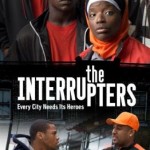We run our website the way we wished the whole internet worked: we provide high quality original content with no ads. We are funded solely by your direct support. Please consider supporting this project.
Take America (& the World) Back for God?
Recently Missio Alliance has hosted a series of posts entitled “Christianity and Violence.” Since Greg has written quite a lot on this topic from the point of view of pacifism, we thought it timely to weigh in on this topic. The following excerpt is quoted from his chapter, “Taking America Back for God” found in his book The Myth of a Christian Nation:
“[A]s citizens of the kingdom of God, we are called to win back America for Jesus Christ—as well as Europe, Iraq, Sudan, Rwanda, and the rest of the world. But everything hangs upon how we believe we are to do this. What power do we trust?
If we think for a moment that we are fulfilling the commission to take the world back for God by acquiring the ability to control behavior through the power of the sword, we are deceived. If we suppose that America, Europe, or any nation is closer to the kingdom of God because certain Christian ideals dominate the political landscape, it is evidence that we have bought into the temptation to trust the sword rather than the cross. If we think we can tweak any version of the kingdom of the world to make it into the kingdom of God, we thereby reveal that our thinking has been co-opted by the kingdom of the world. Again, the only way the world can be won for Jesus Christ is by people being transformed from the inside out through the power of Christ’s love expressed through the Calvary-quality service of his followers.
The question that wins the world is not, how can we get our ‘morally superior’ way enforced in the world? The question that wins the world, and the question that must define the individual and collective life of kingdom-of-God citizens is, how do we take up the cross for the world? How do we best communicate to others their unsurpassable worth before God? How do we serve and wash the feet of the oppressed and despised?
We conquer not by the power of the sword but ‘by the blood of the Lamb and by the word of [our] testimony.’ We conquer by not clinging ‘to life even in the face of death’ (Rev 12:11); we conquer by refusing to place our trust in the violent ‘power over’ kingdom of the world, while instead making it our sole task, moment by moment, to manifest the unique righteousness of the kingdom of God (Matt. 6:33). God in principle won the world through the Lamb’s loving sacrifice, and he’s in the process of manifesting this victory throughout the world through us as we replicate the Lamb’s loving sacrifice in our lives. This is the kingdom of God; this is how the kingdom of God advances. And this is how the kingdom of the world will ultimately become the kingdom of the Lamb (Rev 11:15).
If your response is that this ‘power under’ approach is impractical, if not morally irresponsible, perhaps this too reveals that you have been conformed to the pattern of the world (Rom. 12:2) and have allowed yourself to trust ‘power over’ rather than ‘power under.’ Perhaps it reveals that you have placed more faith in worldly ‘common sense’ than in the resurrection. Perhaps it reveals that worldly effectiveness has replaced kingdom faithfulness as your primary concern” (103-105).
Category: General
Tags: Non-Violence, Politics, Social Issues, Violence
Related Reading

Are you a pietist?
Question: Soon after the publication of your book The Myth of a Christian Nation, I heard Chuck Colson charge you with being a “pietist.” Since then, others have repeated the charge. They all claim you advocate a Gospel that focuses on individual salvation but leaves social issues for government to address. Are you a pietist?…

The Unfaithfulness of Violence
For more videos like this be sure to visit The Work of the People.

Let’s Remember
In light of the events in the last few days involving attacks on American diplomats in foreign countries (and the ensuing political conflict), let’s remember one thing: Our fight is not with flesh and blood. As Christians, our real enemy is not Libyans or Egyptians or Muslims or President Obama or Governor Romney. Our enemy…

How Revelation Uses Violent Images in an Anti-Violent Way
All the violent scenes in Revelation are symbols for the battle of truth and deception. They never involve literal violence. In fact, they symbolize ANTI-VIOLENCE. The ingenious way John helps us get free of deception of trust in violent power is by taking a standard violent symbol and juxtaposing it with a symbol that undermines…

Blessed are the Peacemakers
We recently watched a show on Frontline (PBS) called The Interrupters. This two hour long documentary follows several “Interrupters” as they attempt to peacefully resolve conflict in their oftentimes violent neighborhoods in Chicago. The group of Interrupters is a mix of the young and the not-so-young, women and men, single and married. They represent multiple…

Is Islam Inherently Violent? – Further Thoughts
Greg originally posted some thoughts on Islam here. In this video, he discusses some responses he received, and further thoughts on a Kingdom posture toward Muslims.

